Trees for a Windbreak
When choosing trees for a windbreak, it’s crucial to consider factors like tree height, density, and ability to withstand conditions.
Before initiating the planting process, it is essential to create a yard map. Windbreaks should be planted on your home’s north and northwest sides, where it tends to get coldest during winter.
Using Trees as for a Windbreak
When establishing a windbreak, it’s important to consider how you lay out and space the trees. Planting rows of trees with ones at the back and smaller ones at the front can create a more effective barrier against winds. Additionally, calculating the distance between rows and between trees within each row is key to maximizing wind reduction.
- Effective windbreaks block wind close to the ground by utilizing trees and shrubs with crowns.
- Evergreen trees with foliage that are planted on the north and northwest sides of your home are commonly used as windbreaks.
- Deciduous trees. despite losing their leaves in winter, can also block the wind. Species like American elm oak and maple are well suited because of their thick branching structure.
Using Trees to Effectively Block Wind
While these trees are known for their wind-blocking qualities, the effectiveness of a windbreak can depend on various factors, such as:
- Site conditions – soil type and location of the windbreak area
- Required maintenance – Regular pruning and care are crucial to ensure the trees develop a dense canopy to block the wind effectively.
- Number of trees required or tree size at maturity – you may need several trees depending on the species. Some trees grow faster than others.
Planting trees to block the wind can also offer other benefits. These trees can help prevent soil erosion, providing wildlife habitats and enhancing the landscape’s aesthetic appeal.
Showing 1–9 of 11 results
-
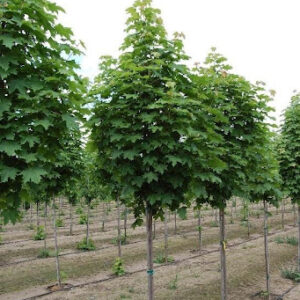
Acer platanoides ‘Columnarbroad’’ – Parkway® Maple
-

Acer platanoides ‘Columnare’ – Columnar Norway Maple
$250.00In Stock -
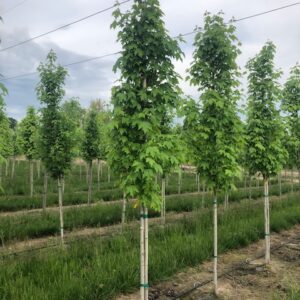
Acer rubrum ‘JFS-KW78’ PP25301 – Armstrong Gold® Maple
$250.00In Stock -
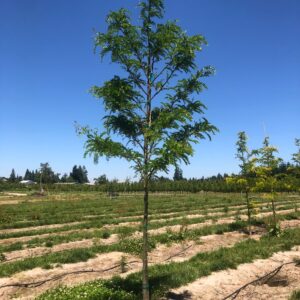
Gleditsia triacanthos var. inermis ‘Impcole’ – Imperial® Honeylocust
$250.00In Stock -
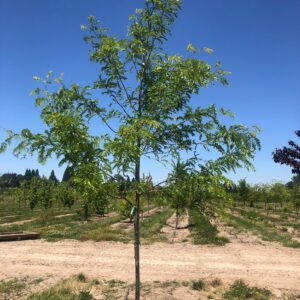
Gleditsia triacanthos var. inermis ‘Shademaster’ – Shademaster Honeylocust
-
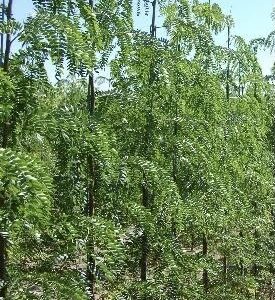
Gleditsia triacanthos var. inermis ‘Skycole’ – Skyline® Honeylocust
$250.00In Stock -
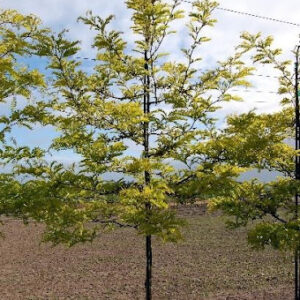
Gleditsia triacanthos var. inermis ‘Suncole’ – Sunburst® Honeylocust
$250.00In Stock -
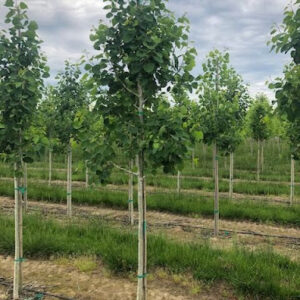
Populus ‘Klaus Select’ Summer Shimmer – Summer Shimmer™ Aspen
-
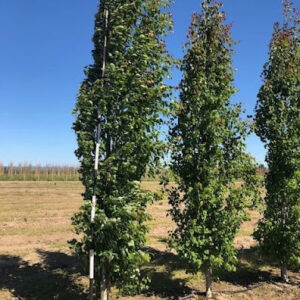
Populus tremuloides ‘Erecta’ – Swedish Columnar Aspen
